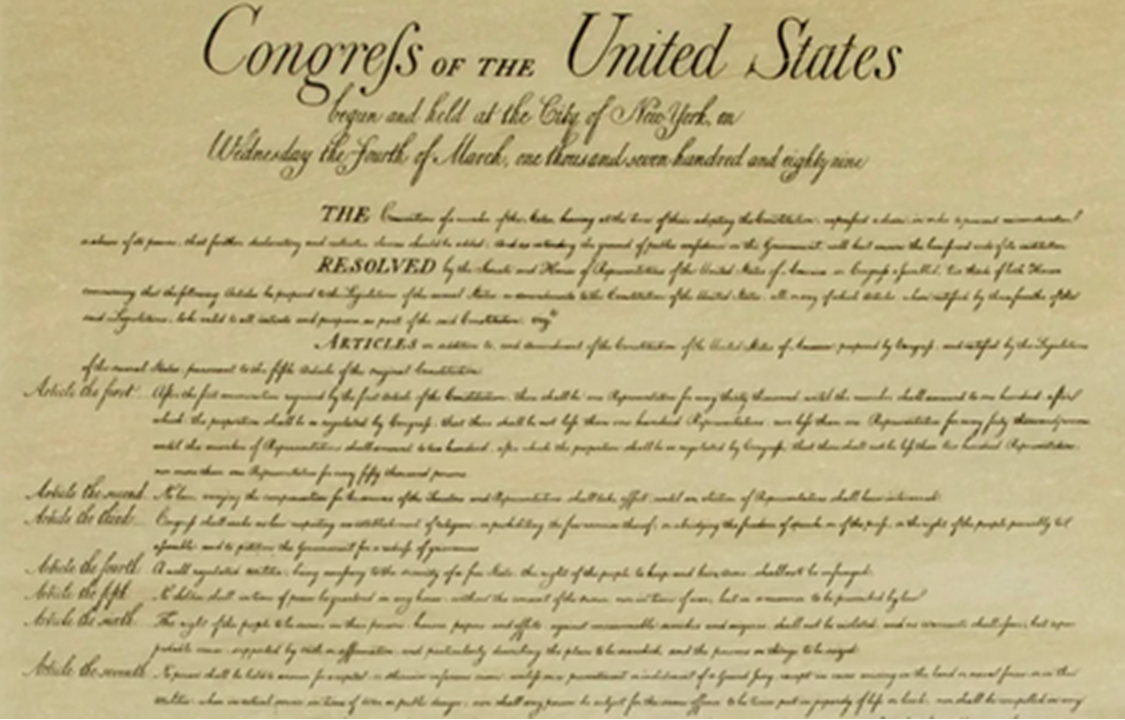
Originalist When Expedient
Conservatives have argued that Roe v. Wade was a bad decision because it created a right which was not present in the Constitution. Nowhere does the Constitution say anything about a right to abortion; therefore, they argue, such a right is not inherent in the document. In this view, Roe was the imposition of a political opinion by activist judges who usurped the role that is supposed to belong to the legislature and executive branches.
As a liberal, I think opposition to abortion is immoral and dangerous, but that the legal case against Roe makes some compelling points. An originalist court might be a good thing. However, an originalist court is not what we have.
Amending an Amendment
The very same week that the Supreme Court struck down Roe, it solidified its activist position on guns with New York State Rifle v. Bruen. The court limited state gun control laws based on the belief that the Constitution protects an individual’s right to bear arms. This belief was no where to be found until 2008, when a 5-4 majority discovered such a right in their ruling in District of Columbia v. Heller.
The minority dissent in Heller gives a good explanation of what went wrong in the Heller decision. The text of the 2nd Amendment is:
A well regulated militia, being necessary to the security of a free state, the right of the people to keep and bear arms, shall not be infringed.
Until Heller, the “right” in this sentence was always interpreted to mean the right to have a well-regulated militia, generally considered to be the National Guard of each state. The innovation in Heller was to say that while the Amendment spoke of a militia, what it meant was the right of individuals to keep and bear arms for personal self-defense or other purposes.
“Personal self-defense,” a phrase which is not in the Constitution, but which conservatives have found in it, no doubt as a penumbra to the actual text.
Ah, but a careful reading will note that the 1st and 4th Amendment also refer to rights of “the people” which are interpreted as individual rights, and therefore the fact that “the people” appears in the 2nd Amendment means that it too, is referring to an individual right. As the Heller dissent points out, the 2nd Amendment differs because it includes an introductory clause clarifying the point of the amendment – securing a free state with a well-regulated militia – which is intrinsically a group right rather than an individual right. The dissent also notes that:
“the Court itself reads the Second Amendment to protect a “subset” significantly narrower than the class of persons protected by the First and Fourth Amendment s… the Court limits the protected class to ‘law-abiding, responsible citizens,; ante, at 63. But the class of persons protected by the First and Fourth Amendment s is not so limited; for even felons (and presumably irresponsible citizens as well) may invoke the protections of those constitutional provisions.”
The Right to Suppress
While it’s especially galling to see the duel decisions in the same week, one limiting woman’s freedom in the name of judicial restraint and the other resting on judicial activism to increase freedom of weaponry, this isn’t the first example of judicial hypocrisy. In Shelby County v. Holder, the Supreme Court voided parts of the 1965 Voting Rights Act because in the opinion of the majority of justices, discrimination had decreased enough to no longer justify some provisions of the act. In other words, they knew better than Congress about the need for such legislation.
Freedom to Regulate Your Employees’ Rights
New York State Rifle won’t be the last instance of conservative judicial activism. Having marketed itself as a corrective to undemocratic practices by liberals, the Supreme Court created by strong-arm tactics and electoral college quirks will no doubt find other rights besides unmolested voter suppression (Shelby) and unimpeded firepower. Perhaps next they will find rights to impose Christianity on non-Christians or to foul the air and water. We have already seen, in the Burwell v. Hobby Lobby Stores that employers have the religious freedom to exempt their employees from certain health insurance coverage that the employer objects to, but employees do not have the religious freedom to access that coverage.
The Age of Right Wing Judicial Activism
It is time that the exercise of conservative judicial power brings clarity to our arguments over the court. Conservatives should not be allowed to hide behind the fiction that they are neutral umpires who are not trying to impose their own vision on America. Neutrality is indeed a worthy goal for the courts, but we are now getting the worst of all worlds: a court that is imposing its own political opinions on the law, and one that is doing so in pursuit of a country that is less free, less fair, and less safe.